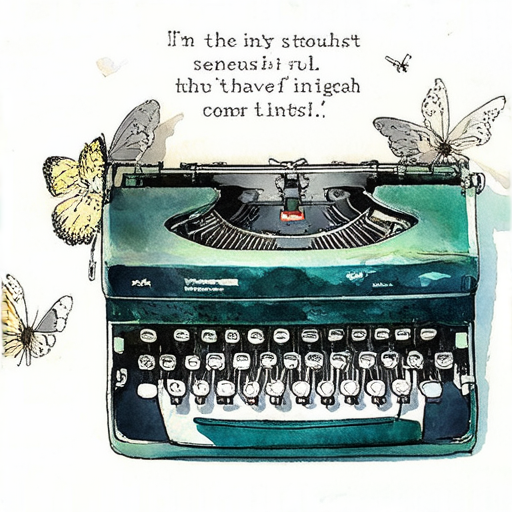As aspiring authors strive to hone their craft and produce high-quality written works, they often seek guidance from experienced writers who have navigated the challenges of the writing process. In today’s digital age, where information is readily available at our fingertips, it can be overwhelming to sift through the numerous tips, tricks, and advice offered by experts in the field. However, what sets apart the truly successful authors from those who struggle to make a name for themselves? By exploring the collective wisdom of renowned authors, we can gain valuable insights into the best practices, essential tools, and productivity hacks that have contributed to their success.

The Best Writing Advice
I’ve had the privilege of learning from numerous bestselling authors, and I’m excited to share their collective wisdom with you.
- Be Authentic: Write from the heart, and don’t be afraid to show vulnerability. As Neil Gaiman once said, “The one thing that you have that nobody else has is you. Your voice, your mind, your story, your vision. So write and draw and build and play and dance and live as only you can.”
- Read Widely: Reading is essential to becoming a better writer. Expose yourself to various genres, styles, and authors to broaden your understanding of language and storytelling.
- Write Regularly: Consistency is key to developing your writing muscle. Set aside dedicated time to write, and stick to it, even if it’s just for a few minutes each day.
- Edit and Revise: Don’t be afraid to cut scenes, characters, or entire drafts if they’re not working. Revision is a crucial step in refining your work and making it shine.
- Join a Writing Community: Surround yourself with fellow writers who understand the struggles and triumphs of the creative journey. Attend workshops, join online forums, or start a local writing group to connect with like-minded individuals.
- Learn from Failure: Not every piece of writing will be a success, and that’s okay. Use rejection letters and criticism as opportunities to grow and learn, rather than getting discouraged.
- Stay Curious: Keep exploring new ideas, themes, and perspectives to stay inspired and motivated. Read books on writing, attend conferences, and engage with other creatives to fuel your passion.
- Practice Self-Care: Writing can be mentally and emotionally demanding. Make time for exercise, meditation, and relaxation to maintain your physical and mental well-being.
- Persevere: Writing is a marathon, not a sprint. Stay committed to your goals, and remember that every word counts, even if it takes time to see progress.
- Seek Feedback: Share your work with trusted beta readers, editors, or mentors to receive constructive feedback and guidance. Use this input to refine your craft and improve your writing.
- Keep Learning: Writing is a continuous learning process. Stay updated on industry trends, best practices, and new technologies to stay ahead of the curve.
By incorporating these tips into your writing routine, you’ll be well on your way to becoming a skilled storyteller and effective communicator.
What Authors Need the Most
As a writer, I’ve come to realize that there are several things that authors need the most to succeed in their craft.
- Creativity and Imagination
- Self-Discipline and Perseverance
- Supportive Community
- Time Management Skills
- Continuous Learning
- Motivation and Inspiration
Authors need to have a vivid imagination and creativity to come up with unique ideas and stories that capture the attention of readers.
Writing a book requires a tremendous amount of self-discipline and perseverance, as authors need to sit down and write every day, often for hours on end.
A supportive community of fellow writers, editors, and publishers can make a huge difference in an author’s life, providing valuable feedback, encouragement, and guidance.
Authors need to be able to manage their time effectively, balancing writing deadlines with other responsibilities, such as family and work obligations.
The writing craft is constantly evolving, and authors need to stay up-to-date with the latest trends, techniques, and technologies to remain competitive.
Authors need to find ways to stay motivated and inspired, whether through reading, traveling, or exploring new hobbies and interests.
Key Takeaways
In order to succeed as an author, one needs to cultivate a combination of creative skills, personal qualities, and professional habits.
- Develop a strong work ethic and commit to regular writing sessions.
- Nurture a supportive network of fellow writers, editors, and publishers.
- Stay curious and open-minded to new ideas and perspectives.
- Prioritize self-care and take care of physical and mental health.
- Continuously learn and grow as a writer and a person.
Conclusion
By focusing on these essential aspects, authors can set themselves up for success and achieve their goals in the writing world.

Writing a Good Memoir: Expert Advice
As an author, I’ve learned that crafting a compelling memoir requires a combination of honesty, vulnerability, and skillful storytelling.
-
Know Your Audience
-
Show, Don’t Tell
-
Be Honest and Authentic
-
Edit and Revise
-
Write from the Heart
Before you begin writing, consider who your audience is and what they’ll gain from reading your story. Are you writing for family members, friends, or strangers? Understanding your audience will help you tailor your narrative and share your experiences in a way that resonates with them.
A good memoir should transport readers into your world, making them feel like they’re experiencing your memories alongside you. To achieve this, focus on descriptive language and sensory details that bring your stories to life. Rather than telling readers how you felt, show them through your actions, dialogue, and body language.
Your memoir is a reflection of your life, and readers will appreciate your candor and willingness to confront difficult topics. Share your struggles, triumphs, and setbacks, but also be mindful of your relationships and those around you. Remember, your story belongs to others too, so be respectful and considerate in your portrayal.
No manuscript is perfect, and editing is crucial to refining your work. Take the time to review your draft, cut unnecessary scenes, and strengthen your narrative. Consider hiring a professional editor or getting feedback from trusted peers to help you identify areas for improvement.
Ultimately, your memoir should reflect your unique voice and perspective. Write from the heart, sharing your passions, fears, and dreams. This will help you connect with readers on a deeper level and create a story that truly stands out.
Additional Tips
When writing a memoir, remember to:
- Use active voice to engage readers and convey a sense of agency.
- Incorporate historical context to provide context and depth to your story.
- Use dialogue effectively to reveal character and advance the plot.
- Keep your narrative concise and focused, avoiding unnecessary tangents or digressions.
Final Thoughts
Writing a good memoir takes time, effort, and dedication. By following these tips and staying true to your vision, you can create a compelling and relatable story that resonates with readers. Remember to stay authentic, honest, and open-hearted, and always keep your audience in mind. With persistence and passion, you can craft a memoir that inspires and uplifts others.

Optimal Writing Hours for Authors
I’ve often been asked how many hours a day I recommend authors write, and my response is simple: find what works for you.
-
While some may thrive with four or five hours of writing per day, I believe in the power of a single focused hour.
-
This doesn’t mean you need to write a certain number of words during that hour – just commit to showing up and doing your best work.
-
The key is finding a daily writing routine that you can stick to, rather than getting bogged down in word counts or productivity metrics.
Why One Hour Can Be Enough
When you’re working on a creative project, it’s easy to get caught up in the idea that more is better.
-
However, research has shown that shorter, focused writing sessions can be just as effective as longer ones.
-
In fact, taking regular breaks can actually help you stay productive and avoid burnout.
-
So don’t feel like you need to spend eight hours a day writing – find what works for you and stick to it.
Creating a Sustainable Writing Routine
To make the most of your writing time, try the following:
-
Set a consistent schedule and stick to it, even on weekends and holidays.
-
Eliminate distractions by finding a quiet workspace or using tools like website blockers.
-
Take regular breaks to stretch, move around, and rest your mind.
By focusing on quality over quantity, you’ll be able to produce your best work and maintain a sustainable writing routine.
Stephen King’s Writing Routine
I’m often asked how much I write each day, and my answer is always the same: I try to write for four hours straight every morning.
- This consistent routine has been a staple of my writing career for decades, and it’s helped me produce some of my most iconic works.
- Of course, I don’t always stick to this schedule – sometimes life gets in the way, and I need to take a day off.
- But for the most part, I find that writing daily helps me stay focused and productive, and it allows me to tap into my creative subconscious.
As a writer, I believe that consistency is key – it’s what separates the hobbyists from the professionals.
- By committing to a regular writing schedule, I’m able to make progress on my projects and see them through to completion.
- This discipline also helps me develop my skills and style, which is essential for producing high-quality work.
- And let’s be honest – writing daily can be a real challenge, but it’s also incredibly rewarding.
So, to answer the question: I write for four hours every morning, and I wouldn’t have it any other way.
For more writing tips and advice, check out my website at JamesWhitfieldThomson.com.

Calculating Word Count in a 300-Page Book
The number of words in a 300-page book can vary depending on several factors, including the font size, margins, and line spacing.
- Average word count per page: 275 words
- Total word count: 275 x 300 = 82,500 words
- However, this calculation assumes a standard font size and margin settings.
- In reality, actual word counts may differ due to variations in formatting and layout.
To give you a better idea, here are some general guidelines:
- Novel-length books: Typically range from 80,000 to 100,000 words
- Memoirs and biographies: Often fall between 70,000 to 90,000 words
- Non-fiction books: Can vary greatly, but usually range from 50,000 to 80,000 words
Keep in mind that these estimates are approximate and can vary depending on the specific book and its intended audience.
As a writer, understanding the word count requirements for your project can help you plan and manage your writing schedule effectively.
By considering these factors, you can get a more accurate estimate of the word count in a 300-page book and plan accordingly.

0 Comments